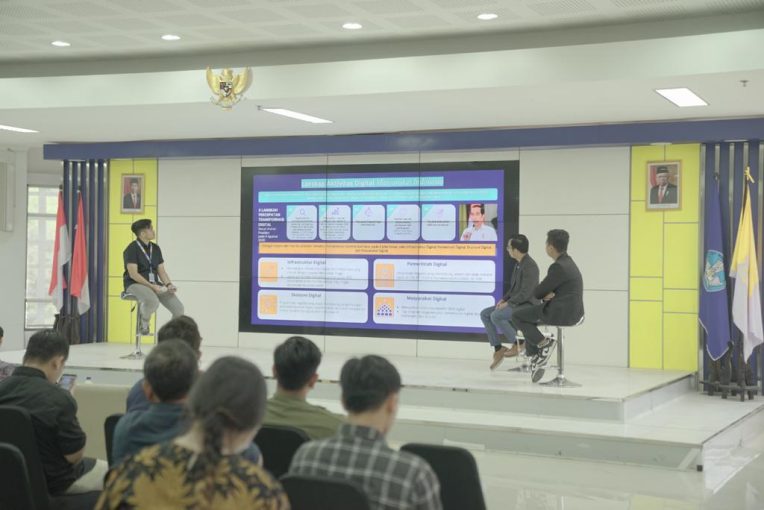
Yogyakarta, August 29th 2023─Successfully opening the Digital Intelligence Course (Mata Kuliah Kecerdasan Digital or MKKD) program since 2020, now the Center for Digital Society (CfDS) of the Faculty of Social and Political Sciences, Universitas Gadjah Mada, has opened three new classes, namely the Basic Digital Intelligence Class, Digital Transformation and Elections, and Unveiling Decentralized and Digital Economy which are open to the general public for free. Not alone, CfDS collaborates with various institutions and organizations, such as Election Corner, Algohub, Algorand Foundation, and IBF Net to organize the classes offered. In addition, the program also collaborates with the Indonesian Ministry of Communication and Information, Siberkreasi, and the Indonesian Ministry of Education and Culture.
The opening of MKKD is one of the efforts made by CfDS in order to support the acceleration of Indonesia’s digital talent. This support is important considering that the digital skills possessed by human resources in Indonesia are still inadequate to support the development of digital transformation. As shown by the digital literacy index which is still around 3.54 or equivalent to the ‘sufficient’ category. This was conveyed by Semuel Abrijani Pangerapan, Director General of Aptika at the Indonesian Ministry of Communication and Information, when delivering his Keynote Speech at the opening ceremony of the Digital Intelligence 2023 Class on Tuesday (29/8).
Besides Semuel, the event was also attended by Wawan Mas’udi, the Dean of Faculty of Social and Political Sciences of UGM; Rizki Ameliah, Coordinator of Digital Literacy for Society of the Ministry of Communication and Information of the Republic of Indonesia; Agung Tri Nugraha, Research Manager of CfDS; Muhammad Andiransa, Algorand Community Champion; and Danang Giri Sadewa, influencer; and moderated by Benyamin Imanuel Silalahi, researcher of CfDS UGM.
Accelerating digital talent is an effort that requires the role of various sectors, including government, universities, and industry. The Ministry of Communication and Information of the Republic of Indonesia (Menkominfo RI) itself has developed a digital transformation roadmap that focuses on 4 sectors. “Menkominfo focuses on 4 big pillars of the digital transformation acceleration, such as digital infrastructure, digital economy, digital government, and digital society,” said Rizki.
Besides the ministry, universities also have an important role to play. “Universities have two roles, providing formal education and training, as CfDS is currently doing,” Agung said. Agung cited research stating that by 2030, there will be ten million new jobs that have never existed before. Preparing digital talents to deal with this is a shared task.
In other sectors, digital talent is crucial to the industry. This also applies in Indonesia considering that Indonesia has great potential, both as a market and producer. Andiransa revealed that Algorand wants to participate in supporting the digital talent acceleration program through formal education. “Collaboration is the choice at this time,” said Andriansa.
As a content creator who actively utilizes digital technology, Danang sees great digital potential that can be utilized by the community. At the same time, Danang also agrees that we need to be digitally smart to be able to utilize the potential and opportunities that exist. “We must be able to go beyond the technology itself,” said Danang.
